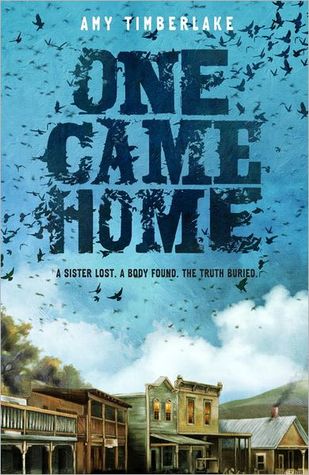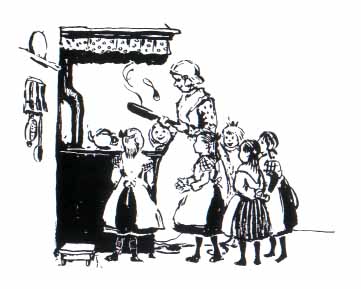 A tornado warning in my county has given me a much-needed free morning
and an opportunity to write about Paperboy, my final 2014 Newbery. The
book was actually due at the library yesterday, so my blog-writing
procrastination may actually cost me 10¢, a fee I refused to pay even
for The Story of Mankind (see previous post), but I would say Paperboy
is worth it.
A tornado warning in my county has given me a much-needed free morning
and an opportunity to write about Paperboy, my final 2014 Newbery. The
book was actually due at the library yesterday, so my blog-writing
procrastination may actually cost me 10¢, a fee I refused to pay even
for The Story of Mankind (see previous post), but I would say Paperboy
is worth it.This semi-autobiographical novel is told in the first-person perspective of an 11-year-old boy who stutters. His name is Victor, but that fact is not revealed until late in the book because he himself struggles to pronounce it. His best friend, Rat (actually Art, but that's harder to pronounce with his stutter), leaves for a month over the summer and Victor takes care of Rat's paper route while he's gone. I thought Victor was an endearing and eloquent protagonist. His struggle to speak makes him the kind of underdog that I live and love to champion, but is also reminiscent of others (Moses, Demosthenes, Enoch) who changed that specific weakness into a strength. His mother's inability to connect and lack of involvement frustrated me, but Mam's and Mr. Spiro's care for and interest in Victor inspired me.
Mr. Spiro is a former merchant marine and book-lover who lives on Victor's paper route. Victor looks forward to collecting from him each week because he treats him as an equal. Apart from Victor's housekeeper Mam, Mr. Spiro is the only adult with whom Victor is able to carry on conversations (including his parents). During one of his Friday afternoon collections for the paper, he goes inside Mr. Spiro's home and gets to see his collection of thousands of books for the first time. Inspired, Victor reveals that he wrote a poem, but immediately realizes he won't be able to recite it to Mr. Spiro because of his stutter. Mr. Spiro suggests they say it together (a strategy that is apparently very helpful for those who stutter), so Victor types it up and they recite it.
I wish I had a book
That did not have an end.
I go to pick it up
And it is new again.
The words feel real
And mine to share.
They have no sound.
They have no air.
My voice is clear
And lets me speak.
My fear is gone.
I'm never weak.
My words all come
And right on time.
The words are true.
The words are mine.
The poem didn't sound like my words even though I had just typed them. Each word floated out of my mouth and joined up with Mr. Spiro's to make one. I didn't stutter once or have to worry about Gentle Air or sneaking up on sounds or fainting. My legs were itching. I looked down to see sweat trickling over my kneecaps and down my legs. For the first time I had said words out loud that I had written on paper.
Mr. Spiro was smiling with his big arms folded across his chest. He looked at me for a while without saying anything and then stood. "My bias against poetry has been properly challenged. A wonderful poem. I'm grateful to you for sharing, my Stuttering Poet."
If someone had called me a Stuttering Boy or a Stuttering Sixth Grader or a Stuttering Pitcher I would have probably tried to pick up something and bust them. But Stuttering in front of Poet seemed to make stuttering a good thing for the first time in my life.





